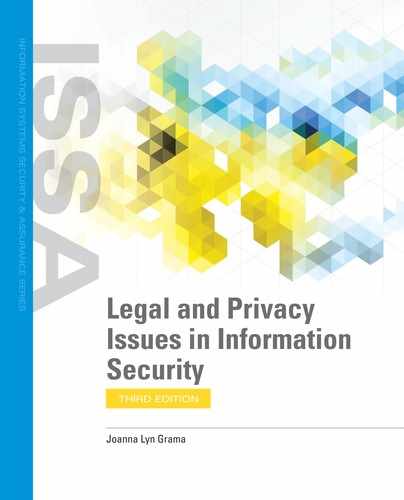What Is Privacy?
Privacy is a simple term that describes many different but related concepts. Writers spend a lot of time trying to define different types of privacy concepts, which is hard because privacy issues often overlap. There are two very general ways of thinking about privacy concepts:
- Freedom from government observation and intrusion
- Freedom to control one’s own personal information
The rise of technology and the internet further complicates these simple definitions and our understanding of privacy issues.
At its core in the technology realm, privacy means that a person has control of his or her personal data. Control means that a person can specify whether he or she wants to share information and the purposes for which he or she wants to share that information. And, if the person decides to share information, control means that he or she should also have a say in how that data is collected, used, and shared. Control means that a person has a choice about when he or she is tracked and monitored.
Privacy rights are individual rights that exist independent of any type of technology. Privacy is a large area of study. In particular, this chapter discusses personal data privacy concerns created or heightened because of an increase in electronic information gathering, storage, monitoring, and transmission.
FYI
A core privacy right for most Americans is the concept that the government’s power to interfere in the privacy of its citizens is limited. This means that people and their information must be free from unreasonable government intrusion. The government must not investigate a person or his or her personal information without a good reason. Courts spend a lot of time defining when governments are allowed to investigate their citizens.
Types of Personal Information
The types of information that a person considers private are usually very personal. However, what is very private information for one person may not be as private for others. Information that most people generally consider private includes the following:
- SSN or other identification numbers—This includes an individual’s driver’s license and passport numbers.
- Financial information—This includes bank and credit card account numbers. This also includes investment and retirement account information. Most people also consider the amount of money in these accounts private information.
- Health information—This includes diagnoses and prescription drug information. Most people consider information regarding mental illness to be highly sensitive and private.
- Biometric data—This type of data includes fingerprints, DNA analysis, and iris scanning. It also includes data about a person’s physical or behavioral traits. Security professionals and security equipment use biometric data to identify a particular person. Biometric data is special because it is unique to an individual and cannot easily be changed.
- Criminal history data—This includes criminal charges, the outcome of a criminal case, and any punishment that a person may have received.
Public Records and Privacy
Some types of information that people may consider private is actually publicly available information. Public records are records that the law states must be available to the public. Government entities create or file these types of records, most of which are available to the public free or for a small fee. Today most government agencies make these records available to the public via the internet, which makes it easier for the government to meet its legal requirements to make them available to the public. It also makes it easier for almost anyone to access the records. However, people often have little control over the content of public records and how others use the data.
Laws determine whether a record is public or not. The law designates some records as public because there is a compelling interest in making them public, such as notifying people about government actions. Items that are often public records include the minutes of meetings of government agencies, real estate filings, and court records, including most types of criminal records. Sex offender registration lists are also public records in most communities, as are professional license records.
Another type of public record is the court docket. A docket is the official schedule of a court and the events in the cases that are pending before a court. Many federal, state, and local court systems publish dockets online. Electronic dockets may even include the actual documents filed in a court case, which are called pleadings. Pleadings can contain data about civil lawsuits and criminal actions, as well as personal information.
- Family data—This includes information about family members and relationships.
- Other—This includes any other information that a person wants to keep secret. Often this type of information may embarrass a person if released to the public.
